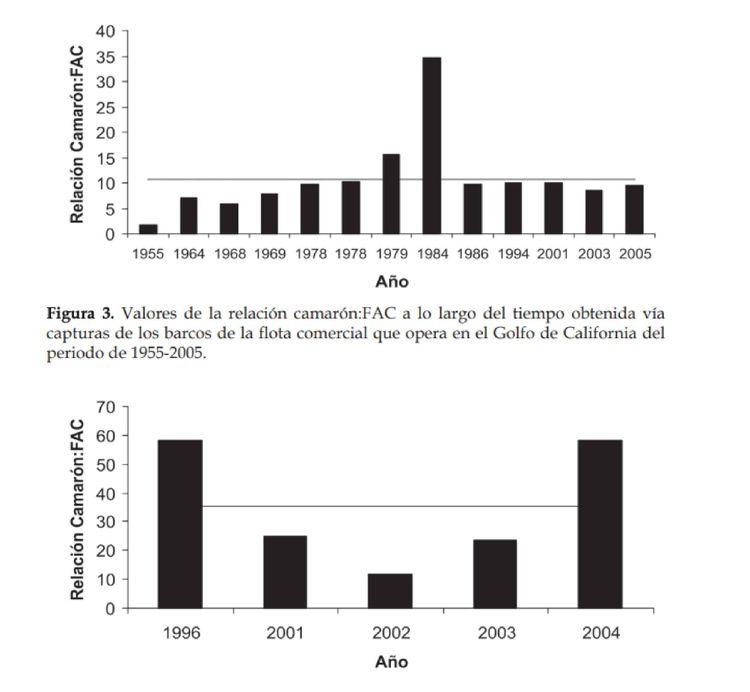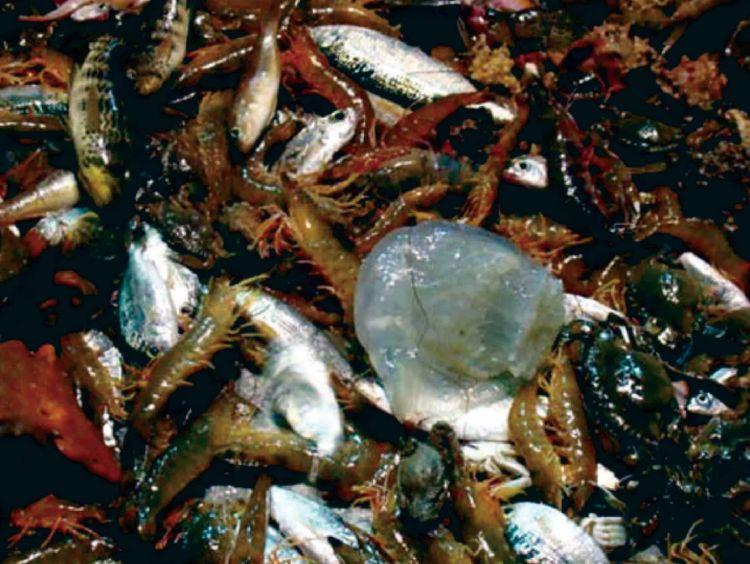Shrimp is one of the species with the highest demand in the world and Mexico ranks third in its production. Until April 30, the United States government announced an embargo that would indefinitely suspend the importation of this species from Mexico.
This embargo could result in losses of 200 million dollars and affect more than 30,000 producers, said José Narro Céspedes, president of the Committee on Agriculture, Livestock, Fisheries and Rural Development at the time.
The bad news didn't stop when, on August 12, Mexico received a negative certification for not curbing illegal fishing in the U.S. waters of the Gulf of Mexico, according to a report from that country's National Marine Fisheries Service (known as NOAA Fisheries).
In an interview with Causa Natura, Dr. Lorena Noriega Orozco of the Center for Research in Food and Development, A.C. explains how this problem has spread along the Mexican coastline; a journey from inappropriate fishing gear to illegal fishing.
- This is not the first shrimp embargo we have in Mexico, after several calls, where do the causes originate?
Indeed, this is not Camarón's first embargo. Historically, the threats of a possible embargo go back much further than 2010. Sometimes for quality, health or other reasons.
But in the last decade, embargoes have had a lot to do with the environmental side.
For example, in 2010 it was related to the lack of turtle excluders in shrimp boats. It is understood that since then the shrimp fishery has not changed, it has not evolved. Larger and smaller vessels, as well as fishing practices, are still considered predators.
The deterioration caused to the environment by the shrimp fishery is what has led to the embargo in recent years.
- What do we mean by the deterioration it causes to the environment?
Specifically, the case of 2010 and the current one are related to the effects experienced by sea turtles. Despite the presence of Turtle Excluding Devices (DET) on boats, embargoes have been associated with lack of training and failure to use.
There are also boats that still use fishing gear such as trawls. This means that when they throw the net into the sea, they sweep the bottom where there is also a lot of species diversity.
If you look at publications since the 80s, you can analyze how the proportion of the Companion Shrimp Fauna (FAC) has changed. In other words, every time shrimp is caught, other species appear -such as turtles-. Many return to the water but are usually dead.
It affects wildlife, a waste of food and an organic burden on the sea.

Background of the shrimp catch relationship and the accompanying fauna included in the research “Variation of the shrimp: companion fauna ratio in the industrial shrimp fishery of the Gulf of California” of the Northwest Biological Research Center (Cibnor).
- And what can we say has been the role of illegal fishing in this type of embargoes?
When an embargo is not imposed overnight, illegal, unreported and unregulated fishing also plays a role.
We have several years since, at the international level, the different markets and organizations give more weight to traceability, that is, the tracing of a product from its origin to final consumption. And this includes dealing with illegal and unregulated fishing because, in the absence of regulation, it can also affect the environment.
I may be fishing for a species that is allowed (as is the case of shrimp) but if other unregulated species are extracted along with shrimp, for markets in other countries it is just as harmful.
Initially, it was believed that it would only apply to larger vessels, but it is necessary to prove the origin of shrimp, which is achieved with a traceability program by Mexico. This unfortunately led us to highlight the use of fishing gear that can affect other species.
- Mexico recently received a negative certification for illegal fishing in the United States, how does it affect the shrimp embargo?
It intensifies it more, it gives it more strength. They cannot lift the embargo because there is the problem of the lack of application of Turtle Excluding Devices and the use of fishing gear that they do not favor. Especially if you don't have control over illegal fishing.
I think that here in Mexico we know that we have shrimp all year round because the ban is not respected.
What do we know about the resulting sanctions and fines?
The last year for which information is available is 2018. In the present administration, this information has not been made public because, according to the same National Aquaculture and Fisheries Commission (Conapesca), it is non-existent information.
However, in May 2021, the National Institute for Transparency, Access to Information and Protection of Personal Data (INAI) decided that Conapesca should provide information on sanctions imposed during 2020. As a result, the fishing authority limited itself to providing information on the number of files per state with the type of sanction. A total of 19 cases concluded in 2020, all with sanctions such as the confiscation of boats and vehicles. The states of Sinaloa with 8 and Veracruz with 5 completed cases stand out in terms of number of cases.
There is not enough vigilance for poaching problems.
Then you have economic factors that go against it. Let's say that the United States does not have in its priorities to resolve the embargo because demand has changed after the pandemic. There are closed restaurants and shrimp is not a product of the basic basket. So if it's not affecting that country's availability, I don't see a prompt resolution. Hopefully I'm wrong because it affects many families in Mexico who live off the fishery.

Sample of the accompanying fauna after catching shrimp in the Gulf of California. Source: SAGARPA-CONACYT project 2003-02-089
- There are everything from fishermen to specialists who are critical of the measures that are applied in the regulated fishing sector, leaving aside the illegal one, why?
The regulated angler can see it that way because they are effectively putting all the weight on him. In part, this is because measures are taken when the problem is advanced. The actions had to be carried out many years ago.
We have worked on the topic of octopus in Yucatán or fishing in Baja California Sur. But it has mainly been through voluntary programs, fishing cooperatives and committees of organizations, not always at the initiative of the government.
It is a very serious problem in the rest of Mexico because the fisherman is not prepared. Something similar was experienced many years ago with processing plants, when good practices such as the use of masks or refrigerated areas were not maintained and it took more than 10 years to understand it, it was a work of training and actions to regulate and maintain it.
- That being the case, what measures should be applied to face the embargo?
Bet on traceability to ensure that there is no illegal fishing. And continue training in good practices on larger and smaller boats.
It is a job both of authority and of a fisherman. Support is needed to change fishing gear in the face of the crisis we are in.
And this must also include reporting real data. Because when information is misreported, we don't know the importance of acting on what's wrong. It is urgent to make people aware of the importance of data about what they live in reality.



Comentarios (0)